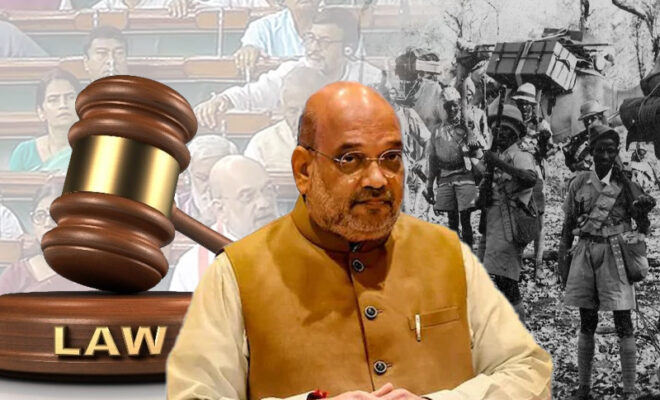How Revamping Of ‘IPC, CrPC, Evidence Act’ Will Impact On Indians

India is planning a big change in its legal system related to crimes and justice. The britishers had made several rules during their British rules which were more about protecting their empire and punishing Indians.
These laws are more than 160 years old which were never updated after India’s independence and not even after the modern technological world.
The main reason behind these new laws is to make the legal system better and fairer. These bills are like a makeover for the laws that deal with crimes and how justice is served.
These 3 bills will replace following old laws from India’s system:
- Indian Penal Code (IPC)
- Criminal Code for Procedure (CrPC)
- Indian Evidence Act
These old laws are going to be replaced by 3 new bills. These old laws were made a long time ago, and now it’s time for some updates.
Three important bills have been introduced in the Parliament that aim to replace old laws with new ones. These new laws are called:
- Bhartiya Nyaya Sanhita
- Bharatiya Nagarik Suraksha Sanhita
- Bharatiya Sakshya Bill.
Home Minister Amit Shah introduced these new bills. Before presenting them, the government talked to many important people and experts, like Chief Ministers, Governors, Judges from the Supreme Court and High Courts, and even universities that teach law. They took advice from many people to make these new bills better.
Let’s understand these news bills in simple terms!
Bhartiya Nyaya Sanhita
The first bill is called the Bhartiya Nyaya Sanhita. It’s going to replace a very old law called the Indian Penal Code (IPC), which was made in 1860! This new bill will have 356 rules to deal with different crimes.
The law against sedition (Rajdroh), which is when someone says or does something against the country, is going away. As this was according to the British government. However ‘Deshdroh’ law will still be there.
But there will still be rules against actions that endanger the country’s unity and safety. The bill also talks about mob lynching, which is when a group of people hurts someone together. This new law will have stricter punishments for such crimes.
Bharatiya Nagarik Suraksha Sanhita
The second bill is called the Bharatiya Nagarik Suraksha Sanhita. It will replace another old law called the Code of Criminal Procedure (CrPC).
This new bill will have 533 sections that explain how crimes are investigated and punished. It’s like having a guidebook for the police and courts to follow when dealing with crimes.
Bharatiya Sakshya Bill
The third bill is the Bharatiya Sakshya Bill. This one is for replacing the Indian Evidence Act. It will have 170 sections that tell how evidence, like proofs and testimonies, will be used in the courts. It’s like setting rules for how to prove if someone did something wrong or not.
Impact On Major Cases With Examples
The government is saying that these new bills are designed to make things better. For example, there will be a special rule for mob lynching, with strict punishments.
Also, people will be able to file complaints (FIRs) at any police station, even if it’s not in their area. This will make it easier for people to report crimes.
The new bills are also focusing on protecting people’s rights. For example, if someone promises to marry a person just to take advantage of them by telling lies or hiding their real identity (aka Love Jihad), it will be considered as a major crime.
Also, there are stronger punishments of 20 years jail sentence for crimes like rape. If the victim is under 16 years old, it will be a death sentence.
The fraudlents who escape from India (like Daud Ibrahim, Vijay Malya, Nirav Modi etc.) will also face the similar sentences like others.
ALSO READ: What Happened In Parliament Over No-Confidence, Manipur Case?
Similarly, the political leaders and government officers will not get special treats. They will have to face similar trials like other criminals.
The Indian government wants to ensure that the laws are fair, transparent, and up-to-date with the times. The idea is to make sure that justice is served properly and that people’s rights are protected.



